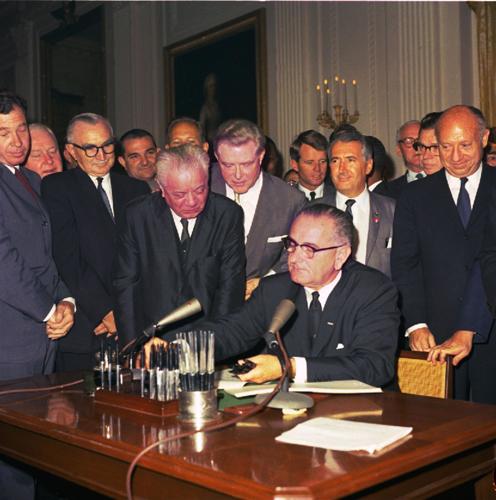

Monday is the 60th anniversary of the successful cloture vote in the U.S. Senate that enabled final enactment, on July 2, 1964, of the landmark Civil Rights Act of 1964. This was the law that made illegal all forms of racial segregation in public businesses throughout the United States.
The big obstacle to a civil rights bill in the Senate at that time was the filibuster. Senate rules provide for unlimited debate, which means that a group of senators could kill a bill by simply talking it to death.
Over the years, Southern Democratic senators had clearly established the idea they would filibuster any strong civil rights bill. As a result, no meaningful civil rights reform had ever been passed by Congress.
In May 1963, the Rev. Martin Luther King Jr. and the Southern Christian Leadership Conference began a series of nonviolent demonstrations protesting the segregation of public facilities in Birmingham, Ala. King had been leading such demonstrations for years, and the cumulative effect was to slowly bring public opinion throughout the nation to support civil rights,
Birmingham Police Chief T. Eugene (Bull) Connor, was an avowed segregationist and brought out police dogs, fire hoses, and electric cattle prods to use on demonstrators.
Newspaper photographs and evening television reports of the violence in Birmingham further increased national support for civil rights, particularly in the North and West. The nation had seen firsthand the worst aspects of Southern White oppression of Blacks.
As a result of the civil rights demonstrations in Birmingham, President John F. Kennedy sent to Congress in June 1963 a strong civil rights bill giving Black Americans equal access to all “public accommodations” throughout the United States.
The new law would make illegal the segregated restaurants, cocktail lounges, hotels and motels, which were the most visible forms of racial discrimination in the South. It also provided for the cutoff of any federal aid programs in the South that were administered in a racially discriminatory fashion.
The assassin's bullet that killed Kennedy in Dallas in the fall of 1963 changed many things, but nothing quite so much as the political situation concerning civil rights.
Kennedy's successor, Vice President Lyndon Johnson, was a Democrat from Texas. Civil rights advocates initially believed this might doom the civil rights bill, but the reverse was the case.
Although a Southerner, Johnson was well aware that public opinion had shifted and was continuing to shift in favor of civil rights. Also, Johnson seized on the civil rights bill as a good instrument for establishing his credentials with Northern and Western liberals. He also knew that this was the right thing to do — even though it would weaken his Democratic Party in the South.